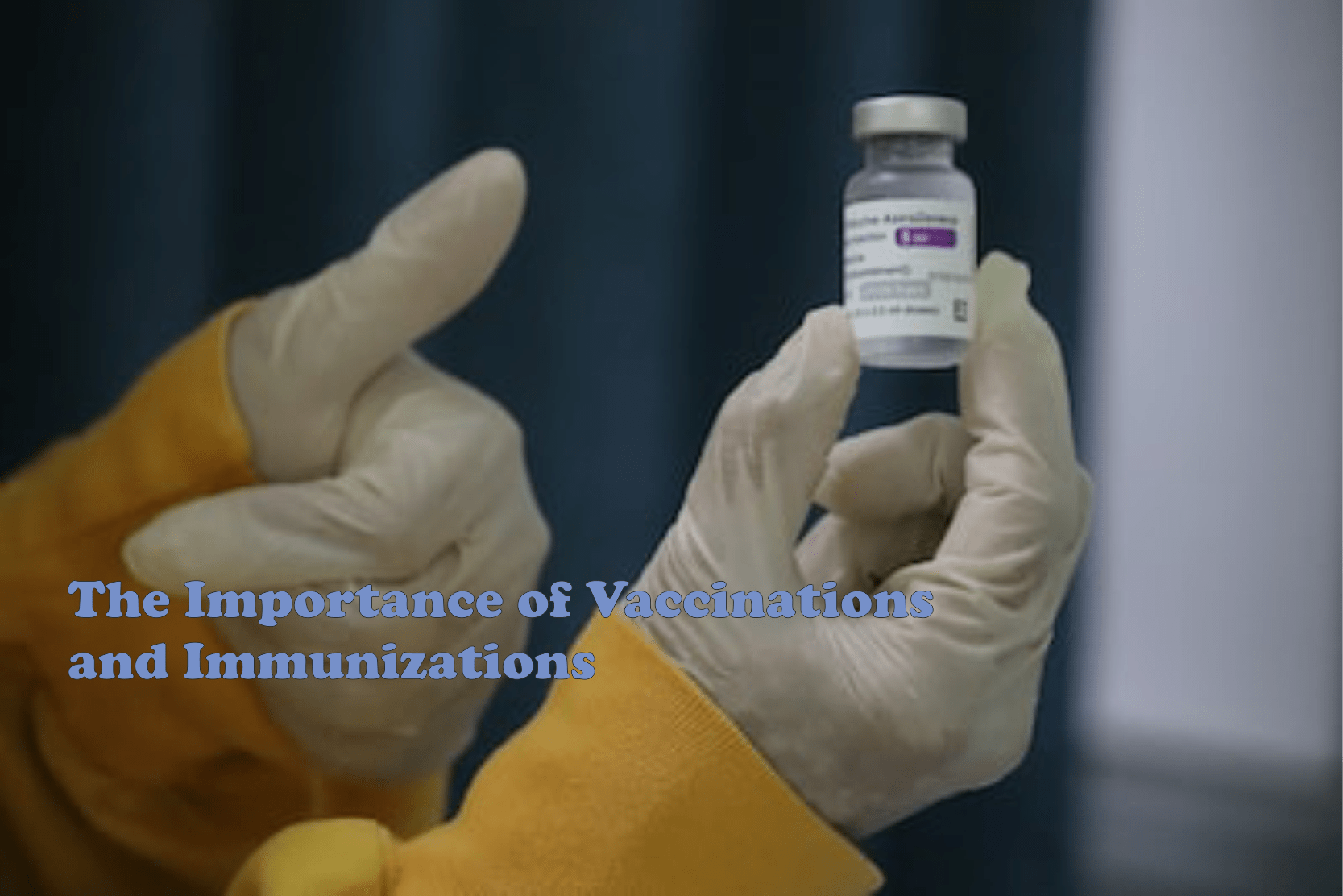The Importance of Vaccinations and Immunizations: A Comprehensive Guide
 The Importance of Vaccinations and Immunizations, Explore the importance of vaccinations in this comprehensive guide, highlighting their benefits for individual health and global public well-being.
The Importance of Vaccinations and Immunizations, Explore the importance of vaccinations in this comprehensive guide, highlighting their benefits for individual health and global public well-being.The Importance of Vaccinations and Immunizations: A Comprehensive Guide – indopelita.com. Vaccinations and immunizations play a critical role in maintaining public health and ensuring the well-being of individuals across the globe.
Safeguarding Public Health and Individual Well-being Through Timely Immunizations
Introduction: Vaccinations and immunizations play a critical role in maintaining public health and ensuring the well-being of individuals across the globe. To put it differently, these medical interventions have been instrumental in controlling and, in some cases, eradicating life-threatening diseases. In this comprehensive guide, we will delve into the importance of vaccinations, their benefits, and how they contribute to a healthier global population.
Understanding Vaccines and the Immune System
To begin with, it is essential to grasp how vaccines work and how they interact with the immune system. Vaccines are biological preparations that stimulate the body’s natural defense mechanisms against specific pathogens, such as viruses or bacteria. To clarify, vaccines contain a small, weakened, or inactive portion of the pathogen that allows the immune system to recognize it as foreign and develop an appropriate immune response.
To emphasize the role of vaccines, once the immune system encounters the actual pathogen in the future, it is primed to respond more effectively, either preventing the disease or reducing its severity. In this way, vaccinations act as a critical line of defense against various infectious diseases.
The Benefits of Vaccinations: The Importance of Vaccinations and Immunizations
Vaccinations offer numerous benefits, both at an individual and community level. To enumerate a few key advantages, consider the following:
Disease prevention
Vaccines are crucial in preventing the spread of serious and sometimes fatal diseases. To put it differently, they have led to the successful eradication of smallpox and significantly reduced the prevalence of polio, measles, and other diseases.
Herd immunity
When a large percentage of a population is vaccinated against a specific disease, it creates a protective barrier known as herd immunity. To illustrate, this barrier helps to shield vulnerable individuals who cannot be vaccinated, such as infants and those with compromised immune systems, from the disease.
Cost-effective healthcare
By preventing disease outbreaks, vaccinations reduce the burden on healthcare systems and lower the overall cost of medical care. To put it another way, they are a cost-effective public health strategy that saves both lives and resources.
Improved quality of life
Vaccinations contribute to better overall health, which enables individuals to lead more productive and fulfilling lives. To summarize, immunizations play a significant role in improving the quality of life for individuals and communities.
Common Vaccines and Immunization Schedules: The Importance of Vaccinations and Immunizations
To ensure optimal protection against infectious diseases, it is essential to follow recommended immunization schedules. To point out a few commonly administered vaccines, consider the following:
Childhood vaccinations
These include vaccines against measles, mumps, rubella (MMR), diphtheria, tetanus, pertussis (DTaP), polio, and others. To emphasize, adhering to the recommended immunization schedule helps protect children from various diseases during their early years, when they are most vulnerable.
Adult vaccinations
Adults should also receive certain vaccinations, such as the influenza vaccine, tetanus and diphtheria boosters, and the pneumococcal vaccine for older adults or those with specific health conditions. To rephrase it, keeping up-to-date with recommended vaccinations is essential for maintaining long-term health.
Travel vaccinations
Depending on the destination, travelers may require additional vaccinations, such as those for hepatitis A and B, typhoid, or yellow fever. To put it another way, consulting with a healthcare professional before traveling can help ensure you are adequately protected against regional diseases.
Addressing Vaccine Misconceptions and Hesitancy: The Importance of Vaccinations and Immunizations
Despite the overwhelming evidence supporting the safety and efficacy of vaccines, some individuals may still experience vaccine hesitancy or hold misconceptions about immunizations. To address these concerns and promote informed decision-making, consider the following:
Vaccine safety
Rigorous testing and regulatory processes ensure that vaccines are safe and effective before they are made available to the public. To put it differently, any potential side effects are generally mild and temporary, and the benefits of vaccination far outweigh any risks.
The myth of vaccine overload
Some individuals worry that receiving multiple vaccines may overwhelm the immune system. However, research has consistently shown that this is not the case. To emphasize, the immune system is capable of handling numerous vaccinations without any adverse effects.
Autism and vaccines
The claim that vaccines, particularly the MMR vaccine, are linked to autism has been thoroughly debunked by multiple scientific studies. To rephrase it, there is no credible evidence to support this claim, and vaccines remain a safe and essential public health tool.
The Role of Vaccinations in Combating Emerging Diseases: The Importance of Vaccinations and Immunizations
Vaccinations play a vital role in addressing emerging infectious diseases, as demonstrated by the development of COVID-19 vaccines. To put it another way, the rapid research and development of these vaccines have been instrumental in controlling the spread of the virus and saving countless lives.
Moreover, ongoing research into new vaccine technologies, such as mRNA vaccines, has the potential to revolutionize the way we respond to emerging diseases in the future. To summarize, the continued development and improvement of vaccines are crucial to safeguarding global public health.
Conclusion: The Importance of Vaccinations and Immunizations
In conclusion, vaccinations and immunizations are essential tools for maintaining public health and ensuring individual well-being. By preventing the spread of infectious diseases, they contribute to improved quality of life, cost-effective healthcare, and the protection of vulnerable populations. To that end, it is crucial to promote accurate information about vaccines and encourage adherence to recommended immunization schedules. By doing so, we can continue to safeguard our communities and foster a healthier future for all. Health, vaccinations, immunizations, public health, vaccine safety, herd immunity, disease prevention, childhood vaccinations, adult vaccinations, travel vaccinations, vaccine misconceptions, vaccine hesitancy, emerging diseases, COVID-19 vaccines.








No Comments